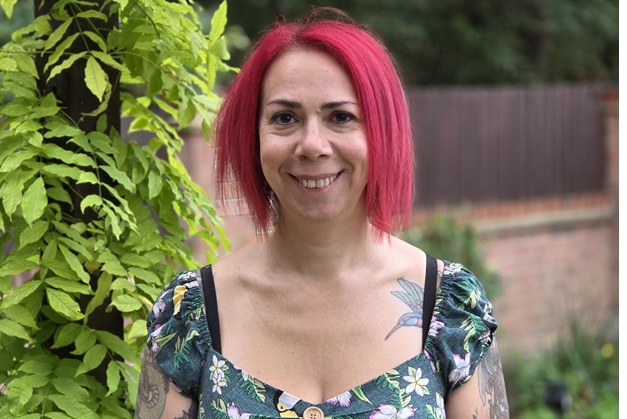For mental health nurses, psychosocial interventions (PSI) aren’t just helpful – they can be an essential tool to improve patient outcomes.
But what exactly are they? And how is the RCN helping nurses put them into practice?
“PSI is a collaborative approach of working with patients and their families (or social network) to support identifying psychological and social aspects of mental health,” says Jo May, an associate nurse consultant in PSI.
“Through understanding this, coping strategies can be developed, using evidence-based practice which supports recovery and improves quality of life.”
Bridging the gap
Jo’s journey into mental health nursing began more than 20 years ago at Broadmoor, where she started as a health care assistant.
“Working with the patients there ignited my passion to complete my nurse training, to enhance the support I could provide,” she says.
Since then, she’s worked in community mental health, children’s services and as a dual diagnosis nurse.
For the last decade she’s been involved in early psychosis intervention and is one of the facilitators of the RCN’s PSI programme, an 18-day course spread over nine months that equips nurses with practical, evidence-based skills to support their patients.
PSI is at the heart of everything we should be doing as mental health nurses
Jo says the shift to degree-based nurse training in the early 2000s left a gap in specialist mental health education.
“While achieving parity of esteem between mental and physical health is vital, it’s unintentionally led to reduced prioritisation of specific mental health interventions.
“This course fills that gap and empowers nursing staff to lead within a specific framework.”
Clear pathways
With around 1.7 million people currently in the UK waiting for community-based therapy such as a psychologist or psychiatrist, PSI is a way to ensure people can receive help sooner, before reaching crisis point.
For nursing staff, it’s a way to build on their continuing professional development, using methods with proven positive results.

“PSI allows nurses to be confident in their setting, whether acute, schools, prisons or community,” says Jo.
If a patient is already under the care of a psychiatrist or psychologist, mental health nurses are an essential cog to oversee cases and manage risk.
With the right training, they’re able to intervene, providing comprehensive care for those who need it.
Evidence-based framework
Launched in 2023 as a two-year pilot commissioned by NHS England, the RCN’s PSI course has already trained more than 150 nurses across several NHS trusts.
Trusts are responsible for funding the training, which is taught to a cohort of mental health nurses working in different settings.
Delivered through a mix of face-to-face and online learning, the RCN plans to continue the programme, expanding it to those who work in other settings such as independent health and social care, schools and prisons.
We can give nurses the tools to work with families
The course isn’t a replacement for traditional psychological therapy or psychiatric treatments, but a way for mental health nurses to use standardised pragmatic frameworks and interventions, wherever and whenever a patient requires support.
These skills pave the way and bridge the gap while they wait, often in long queues, for formal clinic-based therapy.
“The earlier nurses can intervene with therapies if a patient presents with a concern, the less likely the chance someone will go into crisis,” says Jo.
“As nursing staff, we’re not trained psychologists or social workers; we can’t fix everything in someone’s life,” says Jo. “But, we can give mental health nurses the tools to enable patients and their families to work together using evidence-based techniques such as embedding cognitive behavioural therapy approaches, motivational interviewing and other interventions to find solutions."
What does PSI involve?
The PSI programme has been developed by the RCN Nursing Practice Academy from the Institute of Nursing Excellence.
RCN Lead for Mental Health Programmes, Catherine Gamble, FRCN, summarises the course.
“This programme is aimed at post-registered mental health nurses and is a unique learning opportunity for them to use evidence-based practices that can lead to better patient outcomes.
“The training builds on existing therapeutic skills and develops PSI at enhanced care level; bringing about a culture of change and improved professional identity for mental health nursing.”
Here are some of the main learning outcomes of the RCN training programme.
- Family enhanced support: involves promoting inclusion and working with the whole family or support network to enable recovery and bring about change for an individual.
- Social complexity: building awareness around stress vulnerability, recognising symptom severity, and working together to devise practical tools to guide and support patient recovery pathways.
- Coaching: as a supportive development tool, coaching establishes leadership skills and influences best practice.
Overall, the PSI programme incorporates case‑based learning, lived‑experience integration, reflective supervision, and values‑led leadership development.
Richard's experience
“PSI training helped me to set up a service supporting people who are homeless”
Richard explains how the RCN’s PSI programme gave him renewed purpose at work.
After being a mental health nurse for 15 years, I began the training as I moved into a new role supporting rough sleepers. Setting up the service from scratch, I felt a bit lost as I was working alone, away from my old team.I wanted greater knowledge of PSI and starting the course made me realise I’d forgotten what a huge topic PSI is. It made me think, “why is this not more widely taught for mental health nurses?”
As the sessions went on, I found myself connecting with others in my cohort and was inspired being with people from such a broad range of mental health care.
My coach helped me see how far I’d come
I felt more confident in my practice, spurred on by the skill and passion of my colleagues on the course and with the support of my coach.
Trying the techniques I was learning with my new patients was powerful.
I was also able to reflect and discuss the outcomes with the facilitator and my cohort.
I felt very lucky there was so much skill, passion and determination among us.
At a time when I wasn’t confident in what I was doing (writing new policies and data protection documents) my coach helped me see myself from a different angle and this allowed me to acknowledge how far I’d come.
I hope to deliver PSI to other mental health nurses
Now I’ve finished the course, I’ve a much broader understanding of the interventions, and they’re helping me develop a new model of care for the rough sleepers I work with. I’ve enjoyed the course so much I’m hoping to be able to join the facilitators to deliver further PSI to other mental health nurses.
I had lost my identity as a mental health nurse, but through learning more about PSI, I’ve been on a transformational and developmental journey of discovery.
More information
Find out more about the psychosocial interventions programme and other learning from the RCN Nursing Practice Academy from the Institute of Nursing Excellence.
Find out more about the RCN Mental Health Forum and how you can join for free as an RCN member.








